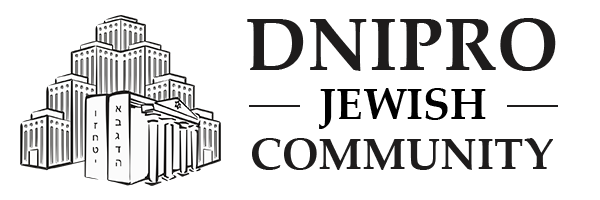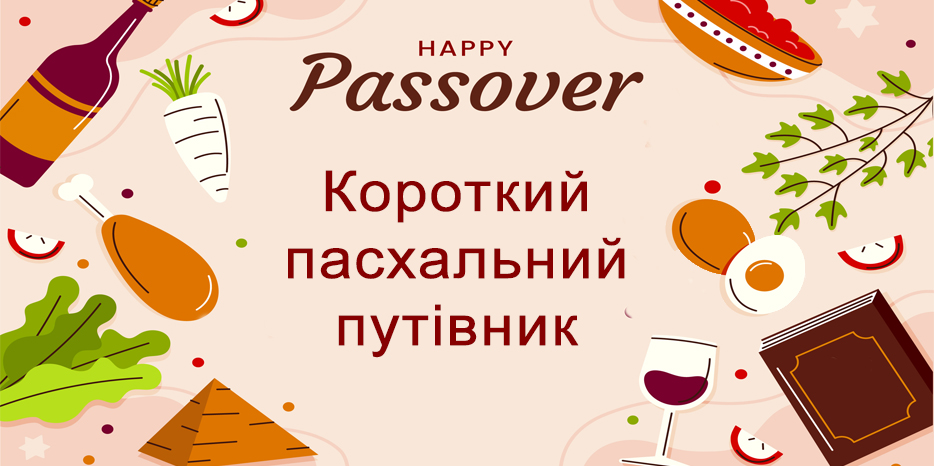The holiday of Pesach, lasting eight days (this year from the evening of April 12 to the evening of April 20), is one of the most significant periods of the year, certainly requiring special preparation, thoroughness, and attention. The laws of preparation for Pesach are quite detailed and are discussed in many authoritative books and treatises, and for clarifications of numerous nuances, it is best to consult a qualified and respected rabbi. We offer you only a general and brief “Guide to the Holiday,” available at https://ru.chabad.org/library/article_cdo/aid/1810548/jewish/-.htm
A brief overview of the laws and customs of the holiday and preparations for it.
A brief overview of the laws and customs of the holiday and preparations for it.Pesach, the holiday of the Exodus from Egypt, is celebrated from April 12 to 20 in 2025. It can be called the time of the birth of the Jewish people. During Pesach, we commemorate liberation from slavery – both physical and spiritual. The holiday itself lasts a week, but preparations for it usually begin long before its arrival.
Preparation for the Holiday
Everything that has undergone fermentation, such as leavened dough, is called chametz. It is forbidden not only to consume chametz but also to keep it in one’s possession throughout the days of Pesach. This prohibition includes products such as bread, cookies, pasta, vodka, whiskey, beer, and similar items.
The only bread product permitted during Pesach is matzah, which is made with strict adherence to all the prescriptions of Jewish law. Eating matzah on the first two nights of Passover is an obligation.
The prohibition on consuming chametz begins in the morning, the day before the holiday. By law, chametz is forbidden in any quantity during Pesach, so one cannot consume any products, mixtures, or drinks that contain even a small part of chametz. It is not only prohibited to eat but also to use products containing chametz, such as flour paste.
The most reliable way to avoid inadvertently violating the prohibition is to purchase foods labeled Kosher for Passover, כשר לפסח, with a rabbi’s seal. For the holiday, one can buy wine, cognac, and grape drinks, any meat and dairy products, numerous spices, and non-alcoholic beverages, provided they have a rabbi’s seal and the Kosher for Passover designation.
Dishes normally used throughout the year absorb chametz, and, naturally, they cannot be used during Pesach without special purification. It is best to acquire separate Passover dishes. However, if you do not have special Passover dishes, you can purify your everyday ones according to specific instructions. To avoid mistakes, consult a rabbi. It should be noted, however, that purification (kashering) is best done several days before Pesach, rather than on its eve.
For more detailed information about chametz and the laws associated with it, you can read here.
Sale of Chametz
Before Pesach, the local rabbi is authorized to sell to a non-Jew the stocks of products containing chametz that one is forbidden to own during Pesach but whose destruction is undesirable, as well as dishes used throughout the year. All these items are stored in a separate place at home and sealed for the duration of the holiday. The seller signs a document authorizing the rabbi to make the sale. Based on this document, the rabbi sells all the specified products and items to the non-Jew.
After the eight days of Pesach, the rabbi redeems everything that was sold. Only in this case can they again use the products and dishes that were sold during the holiday after Pesach. If you are unable to consult a rabbi to sell your chametz, you can use our online form, filling it out no later than the early morning of April 11, 2025.
Bedikat Chametz: Search for Chametz
The day before the holiday, in the evening, a symbolic procedure for searching for chametz is conducted (since in 2025 the eve of Pesach falls on Shabbat, this procedure will take place on Thursday, April 10). Traditionally, the head of the household conducts the search, holding a lit wax candle and using a bird’s feather to gather any hidden crumbs. By this time, all chametz is usually already collected, and all necessary food for that evening and the next morning (the eve of the holiday) is put away in a special place. Therefore, in various pre-known places, ten firm pieces of chametz (each wrapped in paper) are usually left so that the search for chametz is not in vain.
Gather the family, light the candle, and recite the blessing:
Bo-ruch A-toh Ado-noi E-lo-hei-nu Me-lech Ho-olom A-sher Ki-de-sha-nu Be-mitz-vo-sov Ve-tzi-vo-nu Al Bee-ur Cho-metz.
Blessed are You, L-rd our G‑d, King of the universe, who has sanctified us by His commandments, and has commanded us concerning the removal of chametz.
All living spaces where chametz could have been brought during the year should be thoroughly checked. Storage rooms, basements, attics, garages, and cars should also be searched. Every hidden spot should be carefully examined: holes, cracks, spaces between heavy furniture, walls and floors, crevices in the floor and walls, etc.
Now recite the “nullification statement,” renouncing all ownership of any chametz you may have missed:
All leaven and anything leavened that is in my possession, which I have neither seen nor removed, and about which I am unaware, shall be considered nullified and ownerless as the dust of the earth.
Any chametz found during the search (along with the feather and leftover candle) should be placed in a wooden spoon, wrapped in paper, tied, and put in a secure and visible place so that, on one hand, it is not lost and, on the other hand, it is not forgotten and can be burned the next morning.
Eve of the Holiday
On the eve of Pesach, eating chametz is permitted only during the first third of the day. You can check the exact time in our calendar by entering your location. After the time for eating chametz has ended, for one more hour, it can be sold to non-Jews and/or destroyed.
On the day before the holiday, about an hour after the end of the time when chametz is allowed to be eaten, the leftovers from breakfast and the bag with crumbs hidden from the previous evening are burned in a fire (in 2025 this will take place on Friday, April 11). At this time, the host mentally completely renounces any rights to chametz that may be found after the ritual of destroying chametz and states:
All leaven and anything leavened that is in my possession, whether I have seen it or not, whether I have observed it or not, whether I have removed it or not, shall be considered nullified and ownerless as the dust of the earth.
By the end of the aforementioned hour, no chametz should remain in Jewish possession. Chametz found after this cannot be sold and must be destroyed immediately.
Traditionally, firstborn males fast on the eve of the holiday. If the eldest son has not yet reached adulthood, his father must fast (in 2025, this fast is moved to Thursday, April 10). Since this fast is merely commemorative, participation in a meal dedicated to some religious celebration exempts firstborns from fasting. Usually, synagogues hold celebrations on this day dedicated to the completion of a Talmud tractate and invite firstborns to participate.
Seder
The Passover Seder is the most solemn and significant of all Jewish rituals. It is conducted on the first and second evenings of the holiday (in Israel – only on the first). The customs of the Seder contain profound meaning. Every Jew must recognize that these customs are sacred and should perform them without neglecting any, even the smallest details. You can find the sequence of the Seder in the book “Passover Haggadah.”
The main commandments and customs of the Seder are:
to recount the Exodus from Egypt;
to eat matzah;
to eat maror (bitter herbs);
to drink four cups of wine or grape juice;
to eat matzah together with maror (“korech”);
to conclude the meal with matzah (“afikoman”);
The Seder should not begin before the stars come out, but the table should be set and all necessary preparations made in advance.
Children are the main participants of the Seder! The Torah emphasizes several times that the recounting of the Exodus from Egypt is primarily intended for children. To ensure that children do not fall asleep or become tired, it is advisable to put them to bed during the day and during the Seder, especially during the recounting, to give them nuts or another treat.
Days of the Holiday
The holiday of Pesach lasts eight days. On the third day, the so-called “intermediate days” begin – semi-holiday days called Chol HaMoed. The last two days – the seventh and eighth – are full holidays (in Israel – only the last day). On these days, as well as on the first two days, any work is prohibited, and fire may only be kindled from an already burning fire.
On the eighth day of the holiday, during the morning prayer, the memorial prayer “Yizkor” is recited.
According to Hasidic tradition, established by the Baal Shem Tov, a special “Moshiach’s meal” is held on the last day of Pesach – matzah is eaten, and four cups of wine are drunk.
Additional materials on preparing for Pesach, uplifting stories, and educational videos can also be found on the website https://ru.chabad.org/library/article_cdo/aid/558079.




